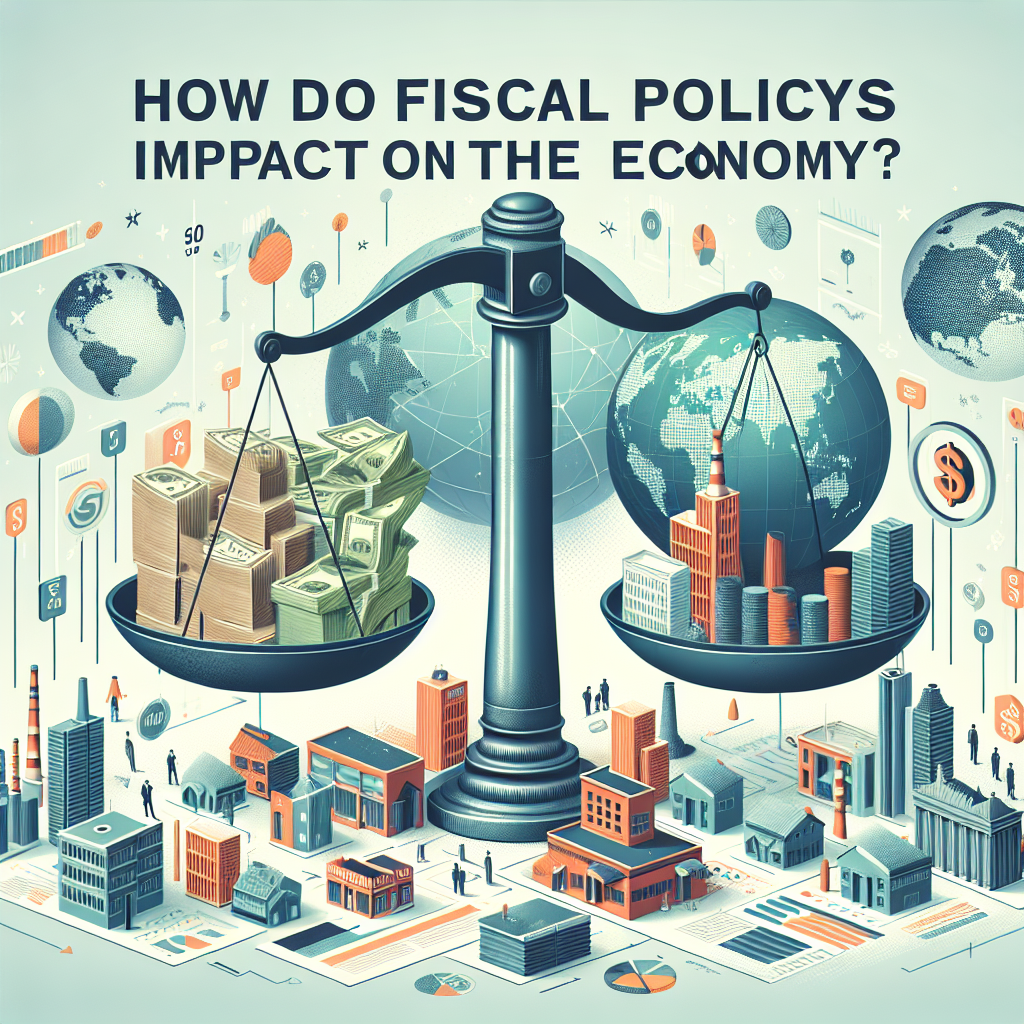Fiscal policies play a crucial role in shaping the economic landscape of a country. These policies, which are formulated and implemented by governments, involve decisions on government spending and taxation with the aim of influencing economic activity. Fiscal policies can have a significant impact on various aspects of the economy, including economic growth, employment, inflation, and income distribution. In this article, we will delve into how fiscal policies impact the economy and explore their importance in promoting sustainable economic development.
One of the primary ways in which fiscal policies impact the economy is through government spending. Governments use spending to invest in infrastructure, education, and healthcare, among other things. This spending can stimulate economic growth by creating jobs, boosting demand for goods and services, and spurring innovation. For example, investments in infrastructure can improve productivity and efficiency, leading to long-term economic benefits.
On the other hand, government spending can also have negative implications for the economy if it is not managed properly. Excessive spending can lead to budget deficits, which may result in higher taxes or inflation. High levels of government debt can also limit the government’s ability to respond to economic downturns, as they may be constrained by budgetary concerns.
Taxation is another key component of fiscal policy that has a significant impact on the economy. Taxes are used by governments to raise revenue, redistribute income, and influence economic behavior. For example, progressive income taxes can help reduce income inequality by taxing higher-income individuals at a higher rate. On the other hand, regressive taxes, such as sales taxes, may disproportionately impact lower-income individuals.
Tax cuts can stimulate economic growth by putting more money in the hands of consumers and businesses. This can lead to increased consumption, investment, and job creation. However, tax cuts can also lead to budget deficits if they are not offset by cuts in government spending or other revenue increases.
In addition to government spending and taxation, fiscal policies can also include measures to regulate financial markets and stabilize the economy. For example, governments may implement regulations to prevent excessive risk-taking by financial institutions or intervene in markets to mitigate the effects of financial crises. These policies are crucial for maintaining financial stability and preventing economic downturns.
Overall, fiscal policies can have a profound impact on the economy by influencing aggregate demand, investment, income distribution, and economic growth. Governments must carefully consider the implications of their fiscal decisions and strike a balance between promoting economic growth and maintaining fiscal sustainability.
FAQs:
1. What is the difference between fiscal policy and monetary policy?
Fiscal policy involves decisions on government spending and taxation, while monetary policy involves decisions on interest rates and money supply. Both policies aim to influence economic activity but operate through different mechanisms.
2. How does fiscal policy impact inflation?
Fiscal policy can impact inflation by influencing aggregate demand in the economy. Increased government spending can boost demand and put upward pressure on prices, leading to inflation. On the other hand, contractionary fiscal policy, such as tax increases or spending cuts, can reduce demand and mitigate inflationary pressures.
3. What are the limitations of fiscal policy?
Fiscal policy has its limitations, including time lags in implementation, political constraints, and possible crowding out effects. Additionally, fiscal policy may be less effective in addressing supply-side issues such as structural unemployment or productivity growth.
4. How can fiscal policy be used to promote economic growth?
Fiscal policy can promote economic growth by investing in infrastructure, education, and technology, among other things. By stimulating aggregate demand and enhancing productivity, fiscal policy can lay the foundation for sustainable economic development.
5. What are the implications of fiscal sustainability?
Fiscal sustainability refers to the ability of a government to maintain a stable fiscal position over the long term. Failure to achieve fiscal sustainability can lead to higher borrowing costs, reduced investor confidence, and limited fiscal space to address economic challenges. It is essential for governments to prioritize fiscal sustainability to ensure long-term economic stability.
